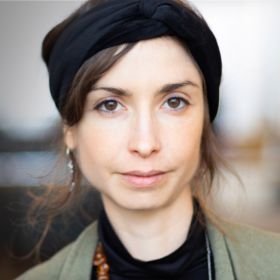Impact Stories
Making Sense of Past and Present
Bahia El Oddi, MBA 2019
“I rediscovered the immense joy of learning and understanding how to better make sense of our past and present in the Entrepreneurship and Global Capitalism course.”
Throughout my life as a student, from elementary school to undergrad, I was fond of my history classes. I have always been fascinated by how past events shape our present. I read all of my history books in advance, even those of the following grades. But when I wanted to pursue my undergraduate studies in international relations, my father “strongly recommended” that I study business or engineering instead. According to him, it was more pragmatic and would ensure that I got a job.
I rediscovered the immense joy of learning and understanding how to better make sense of our past and present in the Entrepreneurship and Global Capitalism course. Since graduating from high school, I had missed learning about the rich content of the past and its “wow” moments of surprise, especially when history reveals the darkest realities of today’s icons. I would have never guessed that the glamourous Coco Chanel climbed the ladders of her success from lover to lover, nor that she was a Nazi agent. I would have never suspected that the famous cultural patron Guggenheim pushed Chile to an economic and political crisis in order to achieve his business interest and build his fortune, nor how other entrepreneurs managed through many tricks and traps to write the untold rules of capitalism.
Professor Jones’s course also pushed me to deeply think about my intrinsic values as a leader and entrepreneur. What do I stand for? What is my moral compass as a leader who truly wants to have a social impact in the world? Some stories and questions troubled me so much that I could not stop thinking about them. Are successful entrepreneurs those who know how to best exploit legal loopholes and their network? Do we need to cozy up to powerful politicians and businessmen to achieve our entrepreneurial goals? These questions tore at me, but helped me to strengthen my values and purpose as leader and entrepreneur. EGC pushed me to look into the deepest parts of myself, to reflect on what I was willing to compromise as well as my strict boundaries. Moreover, I was blessed to have Professor Jones as outstanding professor as well as bright classmates with whom we had deep debates and meaningful conversations.
The most striking was to realize that economic and historical cycles keep repeating themselves. Constant ups and downs, mistakes that occur again and again, with just a few decades separating similar economic and political crises and downturns. In a way, EGC was also a reminder of Nietzsche’s “Eternal Return” in Thus Spoke Zarathustra: "Everything has returned. Sirius, and the spider, and thy thoughts at this moment, and this last thought of thine that all things will return.”
I am not a determinist, however. I believe in change. EGC made me realize that we, as leaders, are drivers of our next generation’s change, responsible for a disruptive transformation that we must undertake to make this world a more sustainable and equitable place for all.

